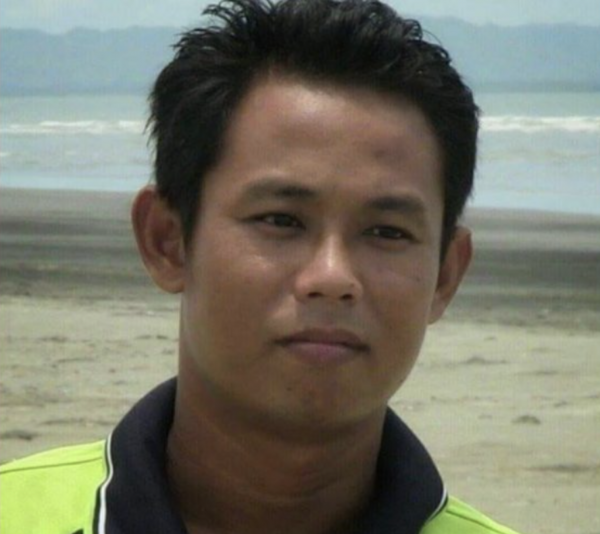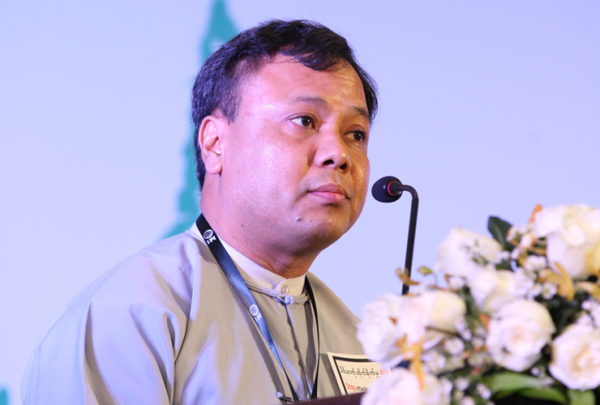Four journalists with the Burmese weekly Unity, as well as the company’s CEO U Tin Hsan, have had their prison sentences reduced to seven years upon appeal, Mizzima News reported last week. The journalists had been originally sentenced in July to ten years in prison with hard labour by a court in the Magway Region of Myanmar for violating Sec. 3/9 of the country’s 1923 Official Secrets Act after reporting on a government factory alleged to have been designed to manufacture chemical weapons. The government denied the allegations and the group was prosecuted for trespassing and taking photographs on restricted grounds.
“The use of official secrets laws, which typically carry lengthy prison terms, in response to journalists’ coverage of issues of public interest goes far beyond the legitimate scope of such laws. The chilling effect these rulings have on journalists seriously threatens the development of independent journalism in a country that is just emerging from years of censorship,” IPI Press Freedom Manager Barbara Trionfi said.
Calling the case a serious blow to the expanded media freedom promised by President Thein Sein when he took office in March 2011, the International Press Institute (IPI) has called on Burmese authorities to immediately release the journalists. IPI Executive Director Alison Bethel McKenzie also raised the issue with Burmese Minister of Information Ye Htut during a visit to the country in August.
YANGON, Aug 21, 2014 – Myanmar’s information minister and presidential advisor, U Ye Htut, told an International Press Institute (IPI) delegation this week that President U Thein Sein will not interfere in the ongoing case of four journalists and a media CEO sentenced to 10 years in prison for violating the 1923 Official Secrets Act.
“The president says that as long as they are in court, he cannot intervene,” U Ye Htut told the delegates during a meeting on Tuesday in Naypyidaw, the capital of Myanmar and the seat of Parliament. The minister said the president will consider his involvement in the fate of the four journalists and the CEO after they have exhausted the appeals process.
A Myanmar provincial court on July 10 convicted the five defendants for violating Sec. 3/9 of the Official Secrets Act. Mizzima Media – a multimedia news company based in Yangon and the winner of IPI’s 2007 Free Media Pioneer Award – identified the defendants as Unity Weekly Paper CEO U Tin Hsan, 52, of Dagon Myothit (South) Township, and journalists U Lu Maw Naing (aka) Lin Kyaw Oo (aka) Lu Maw, 28, of Pauk; U Sithu Soe, 22, of Pyapon; U The Yazar Oo (aka) Yazar Oo (aka) Ko The, 28, of Hlinethaya Township; and U Aung Thura (aka) Paing Thet Kyaw, 25, of North Okkalapa Township.
The court convicted the journalists and the CEO in connection with a Jan. 25 report – “Secret Chemical Weapon Factory” – on a secretive government factory that sources alleged was designed to produce chemical weapons. U Ye Htut told the IPI delegation that the journalists “acted irresponsibly” by “illegally dressing as construction workers and entering the defence office and taking photographs”.
Attorney U Robert San Aung is representing the four journalists. He told Mizzima Media that he will appeal the case to the Magwe Division High Court.
“Four journalists, apart from Tin Hsan, are facing the law and verdict,” U San Aung said. “They are strong enough and fighting for their rights. They are brave and not cowards. They should be rewarded. Organisations should support them and their families as well.”
U San Aung said that the journalists have been in prison for eight months, that their health is suffering and that their families have difficulty seeing them. He also said that the case has impacted press freedom in Myanmar, commenting: “With that kind of practice, media freedom can be damaged.”
IPI has called for the immediate release of the journalists and the CEO.
“A 10-year sentence for these journalists is unfathomable,” IPI Executive Director Alison Bethel McKenzie said from Myanmar. “We call for their sentences to be overturned and for their immediate release. Secrecy laws are often used to punish those who seek to expose information crucial to the public’s right to know, rather than to serve the true purpose of public security.”
IPI, the world’s oldest global press freedom organisation, is in Myanmar to promote its 64th annual World Congress and General Assembly, which is set to take place in Yangon from March 27 to 29, 2015. For more information on IPI and the World Congress, go to www.freemedia.at.


